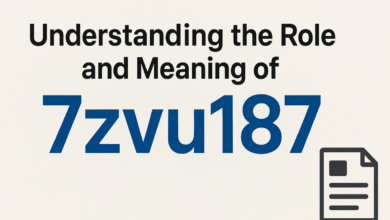Randavü Meaning, Usage, and Cultural Significance

The word randavü is an important part of the Turkish language and daily life. It refers to an appointment, a meeting, or a planned gathering between individuals or groups. The term originates from the French word rendez-vous, which also means a meeting or date. Over time, randavü became a common expression in Turkish, used in both formal and informal situations. Understanding its meaning and use provides insight into Turkish culture, communication, and social interactions.
The origin and history of randavü
Randavü entered Turkish during a period when French influence was strong, especially in the late Ottoman era. Many French words were adopted into Turkish during modernization reforms, and randavü was one of them. The earliest uses of the word can be found in 19th century literature, including novels like Araba Sevdası by Recaizade Ekrem. From then on, randavü became part of everyday Turkish speech, applied in many situations from official meetings to personal encounters.
Different meanings of randavü in daily life
Randavü is flexible in meaning, which makes it widely used. Some of the most common uses include:
- Doctor or hospital appointments, where someone might say “doktor randavü aldım” meaning they scheduled a medical visit.
- Business meetings, such as official appointments with colleagues, partners, or clients.
- Social meet-ups with friends or acquaintances.
- Romantic encounters, where randavü can mean a date or planned outing with a partner.
This wide range of use makes randavü one of the most practical words in Turkish, helping people manage time and relationships.
Common expressions with randavü
Turkish people use several related expressions built around the word randavü:
- Randavü almak: to make or get an appointment
- Randavü vermek: to give or set an appointment
- Randavü saati: the exact time of the appointment
- Randavüya gitmek: to go to the appointment
- Randavü iptal etmek: to cancel an appointment
These expressions show how deeply the word is tied to everyday scheduling and planning.
Randavü and Turkish culture

The way randavü is used reflects values in Turkish society. Making an appointment shows respect for someone’s time and commitments. In business culture, a randavü is often treated with great formality, and being punctual is expected. In social life, however, people may treat a randavü more flexibly, sometimes arriving late or rescheduling without major issues.
When it comes to romantic contexts, randavü carries a sense of excitement and formality, similar to a date in English. However, Turks may also use other phrases to describe going out together, depending on the level of familiarity.
Differences between randavü and similar words
In Turkish, there are other words related to meetings, but they are not identical to randavü.
- Buluşma: a casual meeting or get-together, often with friends or family.
- Toplantı: a formal meeting, usually work-related or involving a group discussion.
- Görüşme: a consultation or negotiation, often used in business or official settings.
Randavü stands in the middle of these terms, covering both personal and professional contexts with a mix of formality and flexibility.
The modern role of randavü in the digital age
Technology has changed how people arrange a randavü. In the past, appointments were made face to face or by phone. Today, online systems and mobile apps are widely used for scheduling. For example, hospitals and government offices in Turkey now allow citizens to make an online randavü for doctor visits, passport services, or other official matters. Similarly, beauty salons, restaurants, and companies use apps to simplify the process.
This shift reflects how the concept of randavü adapts to modern life. It still carries the same cultural importance, but the method of arranging it has become more convenient and efficient.
Social etiquette around randavü
Respecting a randavü is a sign of good manners in Turkish society. Some points to consider include:
- Arriving on time shows seriousness and respect.
- If running late, it is polite to inform the other person in advance.
- Cancelling a randavü without explanation may be seen as disrespectful.
- Formal appointments are treated more strictly than casual ones.
These unspoken rules help maintain social harmony and trust.
Randavü in romantic and personal contexts
When used in a romantic sense, randavü often implies a special meeting. It may involve going out for dinner, walking together, or spending quality time. In modern Turkish society, young people often use randavü for dates, but they may also prefer more casual words depending on the situation. The romantic use of randavü reflects how cultural traditions and modern influences blend in daily life.
Learning how to use randavü correctly
For those learning Turkish, using randavü properly is important. Some useful tips include:
- Use randavü for any planned meeting, whether business or personal.
- When arranging a medical or official appointment, randavü is always the right choice.
- For casual friend gatherings, buluşma may sound more natural, but randavü is still understood.
- Pay attention to formality; a business randavü is treated differently from a casual randavü with a friend.
Practicing these distinctions helps learners speak more naturally and avoid misunderstandings.
Why randavü matters today
Randavü is more than just a word; it is a reflection of culture, history, and communication. It shows how Turkish society values time, respect, and connection. From its French roots to its modern use in apps and online platforms, randavü continues to be a living example of language adapting to change.
Conclusion
Randavü is a word that carries deep cultural, historical, and practical meaning in Turkish life. It connects people in business, healthcare, personal, and romantic contexts. Understanding randavü helps us appreciate not only the richness of the Turkish language but also the values of respect, time management, and social connection that it represents. From its origins in French to its daily role in modern Turkey, randavü remains an essential part of communication and social etiquette.
Frequently Asked Questions about randavü
What does randavü mean in Turkish?
Randavü means an appointment, meeting, or planned gathering. It can be used in many contexts, including medical visits, business meetings, social encounters, or romantic dates.
Where does the word randavü come from?
Randavü comes from the French word rendez-vous, which means a meeting or a date. It entered Turkish during the Ottoman period when French influence on language and culture was strong.
How is randavü used in daily life?
Randavü is used when scheduling or attending any type of appointment. For example, people use it for doctor visits, business meetings, or personal plans with friends and loved ones.
Is randavü the same as buluşma or toplantı?
No, there are differences. Randavü refers to an appointment or planned meeting. Buluşma usually means a casual get-together, while toplantı is more formal and typically refers to work or organizational meetings.
Can randavü mean a romantic date?
Yes, randavü can mean a romantic date, but depending on the context, Turkish speakers may also use other phrases like going out for dinner or spending time together.



